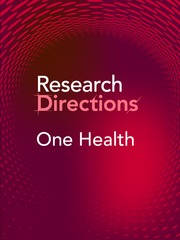Context
The healthcare sector has proven to be supportive in stimulating health through contact with nature (Robinson and Breed, Reference Robinson and Breed2019; Kondo et al., Reference Kondo, Oyekanmi, Gibson, South, Bocarro and Aaron Hipp2020). Despite the positive practice examples, we see several challenges. There is no clear consensus or common understanding on quality assurance and health impact assessment of green care: there still is a wide range of approaches within different health expert communities and contexts, either with or without some form of qualified support such as coaching. As there is no ‘one size’ prescription fit for all, green care needs to be tailored to individual characteristics and circumstances, both of which are dynamic, e.g., in an environmental sense due to climate change, or related to socio-cultural dynamics (Beute et al., Reference Beute, Andreucci, Lammel, Davies, Glanville, Keune, Marselle, O’Brien, Olszewska-Guizzo, Remmen, Russo and de Vries2020a,b; Superior Health Council Belgium 2021). Sustainable health-related nature contact is not always easy to achieve especially when there is no follow-up with either healthcare professionals or other supporting organizations through social prescription. Accessibility of natural areas is often quite unequally distributed, with the more vulnerable often benefitting least, especially in urbanized areas. Another challenge is to achieve a reciprocal health relationship with nature: a stronger connection with nature and caring for nature helps to sustain a positive healthy relationship (O’Brien et al., Reference O’Brien, Townsend and Ebden2010; Kurt et al., Reference Kurt, Calestani, Chan, Eser, Keune, Muraca, O’Brien, Potthast, Voget-Kleschin and Wittmer2018), which may also contribute to nature conservation in a One Health perspective. As such, the healthcare sector can act as ambassadors for ‘One Healthy’ natural environments.
We invite papers related to nature-related ‘green’ health care One Health operationalization challenges:
-
How can we operationalize nature-related ‘green’ health care within a One Health perspective? Case studies.
-
How can we evaluate quality of nature-related ‘green’ health care within a One Health perspective? Environmental health impact assessment.
-
How to weigh scientific and other evidence on nature-related ‘green’ health care within a One Health perspective?
-
How to deal with a multi-level and multi-stakeholder green healthcare governance perspective?
-
How to organize nature-related ‘green’ health care science – policy – society interfaces in a One Health perspective?
-
How to (co-)design nature-related ‘green’ healthcare decision support?
-
How ethics and inclusivity should envision nature-related ‘green’ health care in a One Health perspective.
-
How can actors be supported to avoid the fallacy of an ad hoc reductionist response to the complexity of nature – healthcare linkages?
How to contribute to this question
If you believe you can contribute to answering this question with your research outputs, find out how to submit in the instructions for authors (https://www.cambridge.org/core/journals/research-directions-one-health/information/author-instructions). This journal publishes results, analyses, impact papers and additional content such as preprints and ‘grey literature’. Questions will be closed when the editors agree that enough has been published to answer the question so before submitting, check if this is still an active question. If it is closed, another relevant question may be currently open, so do review all the open questions in your field. For any further queries, check the information pages (https://www.cambridge.org/core/journals/research-directions-one-health/information/about-this-journal) or contact this email ([email protected]).
Competing interests
The author(s) declare none.




